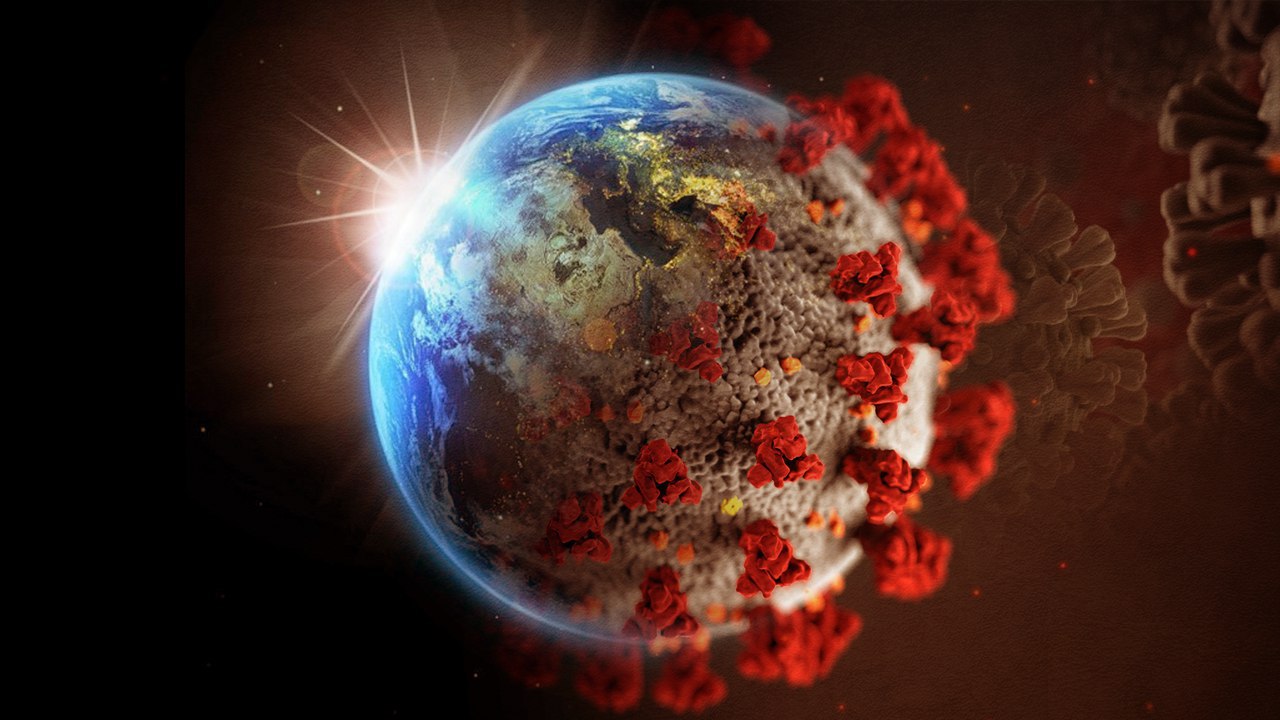Many states are desperate in the face of the coronavirus pandemic: governments are panicking and the economy has already collapsed. This crisis is expected to deepen, all of which assures that humanity will likely be seeking a new path.
Everyone seems to be asking: “What has the pandemic changed/ will change socially and politically?” a particularly pertinent question for those thinking or dreaming about the future.
In this article we will attempt to provide an answer to this question, although there are many, specifically taking account of the impact of the pandemic on international relations.
CHINA HAS COME OUT AHEAD
China, which had begun fighting the pandemic in December 2019, has managed to stop the spread of the pandemic at home: with a population around 1.5 billion people. Not only that, it is now also helping other countries thanks to its strict and radical methods.
When the Coronavirus pandemic broke out in Wuhan, China, the rest of the world chose to watch the events in the Far East in ignorance.
Western countries were not able to foresee that the pandemic would lead to such destruction at home, devastating the heartlands of the Atlantic Alliance, particularly in the United States and in Italy.
President Trump’s efforts to associate the virus with China have failed, something evidenced in the fact that he is now trying to work with Beijing to fight the pandemic.
— Donald J. Trump (@realDonaldTrump) April 6, 2020
In an article in Foreign Policy, Lee Seong-Hyon, the director of the Sejong Institute’s Center for Chinese Studies, outlines China’s achievement in comparison to the United States:
“China understood that the pandemic was an opportunity to facilitate the use of soft power in its relations with Europe and with other regions. On the other hand, the United States has avoided helping its traditional allies and friends.”
China, which had successfully used the fight against the epidemic as a measure of soft power, has also stepped in to help Europe, which has already been moving away from the United States under the Trump Administration.
Serbian President Vucic’s statements perhaps best capture the general sentiment: “European solidarity only exists on paper. China is the only country that actually helps.” Italians have raised Chinese flags to salute Beijing’s help, showing a change in European perceptions.
The frequent emphasis on the Chinese aid in fighting against the pandemic by Turkish government officials further indicates that Beijing has come out ahead on a global scale in the wake of the pandemic.
"We are facilitating the U.S. government's purchase of personal protective equipment made in China. Indeed, factories are operating in full swing to fulfill the orders of medical supplies from New York and other parts of America," says Chinese ambassador https://t.co/QLns4wcfcj pic.twitter.com/CPzf9kHnEV
— China Xinhua News (@XHNews) April 6, 2020
THE UNITED STATES AND THE EU ARE ON THE LOSING SIDE
The US, EU and NATO have weakened during the pandemic, and split further and further apart from each other in the process.
The failure to produce a solution to the rapidly spreading epidemic in Italy, Spain and France, as well as the collapsing British healthcare system following British Prime Minister Boris Johnson’s proposed “herd immunity” model, has left Europeans fearful and distrustful of their own governments and the EU.
Italy’s former Prime Minister and current main opposition leader Matteo Salvini responded saying: “I hate and am disgusted by the EU. It is a den of snakes and jackals rather than a union. We will beat the virus first, then we will go back and reconsider the EU. If necessary, we will leave without gratitude.”
The United States had suffered a major defeat as New York City became the new center of the coronavirus as a result of Trump’s failed crisis management efforts.
I wish I could promise New Yorkers this will be over soon. I can't.
Here's what I can promise.
I will continue to give you the facts and I will make decisions based on science and data.
New Yorkers deserve nothing less.
— Archive: Governor Andrew Cuomo (@NYGovCuomo) April 5, 2020
Given the collapsing healthcare system, the deepening economic crisis and the disconnection between D.C. and the states, it will not be surprising to see the news of internal turmoil within the United States in the upcoming days.
The ties between the United States and the EU have reached a breaking point because of Trump’s ignorant policies in relation to Europe.
The deepening economic crisis and social problems it will bring with it will deepen the crisis within the Atlantic Alliance, and for liberalism in general.
DEVASTATION AND ALLIANCES
With China’s and Russia’s visionary moves and the depression of the Atlantic, we can predict the following at the end of the pandemic:
1. As the examples of Italy and Spain had shown, the European Union has failed to manage the crisis. After the pandemic, we will see the EU continue to disintegrate.
#BruciaUnoStraccioBlu#fuckeu#Italexit#Italexit pic.twitter.com/5KODlX0dEV
— Just a Ronin ⛩️ (@_ronin07) April 5, 2020
2. In World War II, the United States entered the European theater through Italy. Today, history repeats itself. China and Russia have taken actions to strengthen their influence in Europe through Italy. As Europe’s disconnection from the United States will accelerate in the upcoming years, relations between the union members with Beijing and Moscow will deepen.
3. The impact of the weakened Atlantic bloc in the Middle East can be expected to decrease.
4. After the weakening of imperialist pressure, we will see important changes, new uprisings and alliances in the Middle East for those governments that currently cooperate with the Western powers.
5. Iran’s field of movement will expand as a result of a weakening US, while China and Russia’s influence in West Asia will increase.
6. As Israel becomes more isolated, new fronts will be won in the Palestinian struggle for freedom.
7. On the global scale, nationalist sentiments will rise in parallel to leftist/socialist movements.
When we consider the situation as a whole, the political situation bears similarities to the period just before World War II.
While the established orders and systems lose power, we will see the gravitation toward the political fringes accelerate, producing new alliances, as well as new conflicts.
Europe will be the area most affected by these changes, while the accelerating isolation and weakening global influence can be expected for the US.
The only question now is how China will handle the transition to this new era.

















Leave a Reply